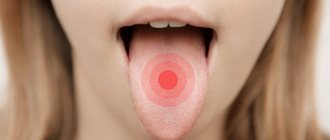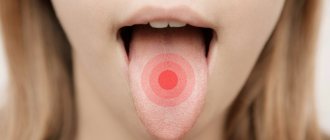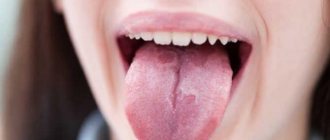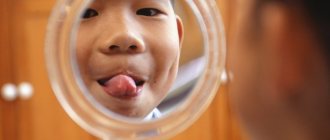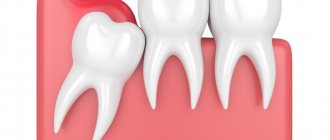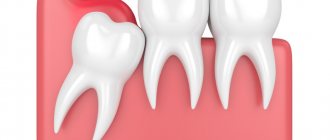Why does my tongue hurt at the tip, bottom or side?
Among the causes of pain in various areas of the tongue, mechanical damage or thermal burns are most often noted. To find out exactly why the tongue hurts, in each specific case it is worth dealing with the support of an experienced doctor. As a result of examination, surveys and thorough diagnosis, it is possible to determine one of the following causes of pain:
- Accidental cuts, bruises, burns or bites while eating, getting cosmetic punctures or talking;
- Inflammatory processes of the mucous membranes of the oral cavity of fungal or viral origin;
- Allergic reactions when taking specific foods or medications;
- Neuralgic reactions as a result of stressful situations or severe mental trauma;
- Improper functioning of the salivary glands;
- The presence of undiagnosed diseases of organs and body systems (digestive, cardiovascular, endocrine systems);
- Development of oncological diseases of the oral cavity.
Organ structure
The tongue has 3 parts - the root, the body, and the apex. Each part is covered with epithelium and mucous membrane, the surface of which is equipped with various types of papillae (mushroom-shaped, filiform, groove-shaped, leaf-shaped).
- The entire surface of the organ is covered with filament papillae. Their structure resembles the shape of thin threads, which is why they got their name. The filament papillae do not have taste buds.
- Leaf-shaped papillae are located on the sides and back of the organ. They look like little folds. The leaf-shaped papillae have taste buds.
- The fungiform papillae are located in the center and at the top of the tongue. They are small red dots; taste buds are present in the epithelium of the fungiform papillae.
- The circumvallate papillae are located in the posterior part and in the body of the organ. Among all the others, the circumvallate papillae are the largest, but they also contain taste buds.
There are blood vessels throughout the muscle tissue of the tongue.
Discomfort in the lateral areas of the tongue
When the tongue hurts on the side of any side, the causes of the discomfort may be a discrepancy in the size of the dentures, inflammation of the mucous membranes, heavy smoking, or characteristic neuralgic manifestations.
Pain on the tip of the tongue
The tip of the tongue is constantly in contact with the teeth and is actively involved in the process of creating sounds, therefore it causes special discomfort to people. The most common reasons for this condition are:
- Minor injuries at the end of the tongue
occur most often, since it is this area that first encounters food, dentures and teeth.
- Glossalgia
accompanied by a burning sensation, as well as the possibility of pain spreading to other parts of the oral cavity.
- Glossitis
– inflammatory disease of the oral cavity.
- Stomatitis
causes small painful wounds at the end of the organ.
- Allergic manifestations
occur as a result of immediate contact with certain medications or foods.
Treatment
Pre-hospital assistance
It is recommended to avoid foods that are too hot, cold, hot or spicy. You should eat soft foods that do not injure the tongue, preferably stewed, boiled, steamed. The best option is a diet that includes purees, slimy porridges, pureed soups. Before and after meals, you need to rinse your mouth with weak solutions of chlorhexidine and potassium permanganate or a solution of furatsilin. For severe pain, the surface of the tongue can be lubricated with local anesthetics.
Conservative therapy
An important part of the treatment is the sanitation of the oral cavity, and, if necessary, the replacement of dentures and orthodontic structures. The list of therapeutic measures is determined by the nature of the pathology:
- Glossitis
. Rinses and applications with anesthetics are indicated. For intense pain, lubrication with a mixture of glycerin and anesthesin is effective. Plaque is removed with a swab containing proteolytic enzymes. Treat with antiseptics. Local healing drugs are used. - Phlegmon and tongue abscess
. For superficial abscesses, rinse with antiseptic solutions, prescribe antibacterial agents, and if ineffective, surgical interventions are performed. For deep abscesses and phlegmons, conservative therapy is an auxiliary treatment method, carried out against the background of operations, and includes antibiotics, analgesics, antihistamines, and anti-inflammatory drugs. - Candidiasis
. Alkalinizing rinsing solutions are used as local remedies. The oral cavity is lubricated with antifungal ointment and treated with solutions of iodinol, lugol, fucorcin. The therapeutic regimen also includes general antifungal drugs and, in severe cases, immunotherapy. - Glossalgia
. It is recommended to take light tranquilizers, motherwort, and valerian. A good result is achieved with trimecaine blockades of the lingual nerve and injections of B vitamins. Unpleasant sensations are eliminated through oral baths and applications with anesthetics. The main pathology and neurotic disorders are treated. - Xerostomia
. It is recommended to stop smoking and drinking alcohol, use soft-bristled toothbrushes, drink frequently to moisturize the mouth, and suck on sugar-free lollipops to stimulate saliva production. The oral cavity is lubricated with a solution of vitamin A. Novocaine blockade of the salivary glands is performed, vibration massage, medicinal electrophoresis, and galvanotherapy are prescribed. - Neuralgia
. Anticonvulsants, non-narcotic analgesics, and vitamin complexes are used. For severe pain, antidepressants, sleeping pills, sedatives, and antipsychotics are recommended. Therapeutic blockades are carried out. Lubricate the tongue with a solution of cocaine. Patients are given a referral for SMT, galvanization, and diadynamic therapy. - Anemia
. In case of iron deficiency anemia, treatment of the underlying disease, nutritious nutrition with a high content of heme iron, and ferrous preparations are required. In case of pernicious anemia, the provoking pathology is corrected and vitamin B12 is prescribed.
What to do if your tongue hurts?
If you experience pain in any area of the tongue, you should make an appointment with a dentist or otolaryngologist. Before going to the clinic, it is necessary to exclude the presence of minor injuries or accidental burns, for which it is important to leave time to heal. If the cause of the pain was a cosmetic puncture, you must strictly adhere to all recommendations and carefully monitor oral hygiene. If your tongue hurts without punctures or wounds, you should consider one of the following options:
- Carrying out dental procedures
with surgery: anesthesia and medical procedures cause swelling of the gums and a small area of the tongue. The discomfort usually goes away as the swelling decreases.
- Inflammatory and fungal diseases of the oral cavity
eliminated by taking antifungal agents and maintaining constant cleanliness in the mouth.
- Inflammatory and infectious diseases of the upper respiratory tract
: sore throat, sore tongue - signs of inflammation of the tonsils or submandibular lymph nodes. The otolaryngologist will draw up a treatment regimen with the prescription of antiviral, painkillers and antihistamines.
Are you worried about short-term or constant pain in different areas of the tongue?
Try to find out the causes of discomfort, remember cases of injury or accidental burns. If pain continues to bother you, you should immediately consult a therapist, dentist or otolaryngologist. An experienced doctor will conduct all the necessary studies and take tests to accurately determine the diagnosis and create an effective treatment regimen. This article is for informational purposes only, please consult your doctor for details! Ask your doctor about contraindications and side effects.
Pain after puncture
Recently it has become fashionable to pierce the tongue, it is called piercing. We will skip moralizing on this topic and tell you briefly what this threatens.
Many patients complain that their tongue hurts for a long time after the puncture. This is considered normal, since a puncture, even the most skillful one, is a kind of injury that takes time to heal. In addition, the tongue is literally riddled with nerve endings, so the puncture site hurts especially strongly. It is impossible to say exactly how long the pain continues after the puncture; this happens individually for everyone: for some, the pain stops 2-3 days after the puncture, for others the pain lasts for 10-12 days. If your tongue is swollen and painful immediately after the piercing, this is normal. However, severe pain and swelling should gradually subside and disappear completely 4-5 days after the puncture. If the pain does not subside after a week or is acute and throbbing, you should immediately consult a doctor, as the possibility of infection cannot be ruled out.
Causes of pain after piercing:
- damage resulting from puncture of nerve endings located in the tongue;
- infection in the wound and development of the inflammatory process;
- allergy to the metal from which the jewelry is made.
In order to prevent the development of complications, you should contact only professionals. After all, not every cosmetologist knows how to properly pierce the tongue without damaging the nerve or developing inflammatory processes. If, after the piercing, the pain when speaking and swallowing does not go away, you should consult a dentist or surgeon.
It should be warned that the closer to the edges of the tongue the puncture is made, the more painful and dangerous complications it is. The easiest way to heal is a puncture made in the center of the tongue, because along the edges of the tongue there are arteries, damage to which can even lead to death. How far from the tip the puncture is made also plays a role. The closer to the root the tongue is pierced, the more it swells and hurts.
- If after piercing your tongue hurts on the side, left or right, you should definitely consult a doctor to see if the lateral arteries are damaged or if they are being pressed by a barbell.
- If the patient is suffering from pain in the tip of the tongue, but it is not swollen and there are no signs of inflammation, such pain must be endured and the puncture site must be given time to heal.
- If the tongue was pierced in the root area, you should expect that the pain at the base will be prolonged, and the healing itself will take 4-6 weeks.
Stitching pain in the tongue after piercing should alert you, as they most often indicate the development of an acute inflammatory process due to infection. Without timely treatment, an abscess may develop.
Important Tips
You can reduce the risk of discomfort and also relieve pain if you follow simple but important recommendations:
- Carry out oral hygiene regularly. If the tip of the tongue is already inflamed, then it should not be touched during hygiene measures. After brushing your teeth, it is recommended to rinse your mouth with decoctions based on medicinal herbs. An analogue of herbal decoctions are antiseptic drugs - Chlorhexidine, calendula infusion, Chlorophyllipt.
- Acute pain can be reduced by using anesthetic solutions.
- The inflamed organ should not be rubbed against tooth enamel.
- During treatment you should avoid eating hot or sour foods. It is important to protect the inflamed organ from contact with aggressor substances and products. In order not to injure the inflamed tongue, it is recommended to avoid eating solid food.
- Remove plaque formed on the mucous membrane with a cotton swab soaked in a disinfectant or anesthetic solution.
- Oils will help quickly relieve tongue pain. Rosehip, sea buckthorn or peach oil has an active analgesic effect. To eliminate discomfort, a small amount of the selected oil is applied to the injured part of the tongue.
- If an abscess forms on the inflamed tip, then self-treatment is contraindicated. It is forbidden to open or squeeze out the abscess. All therapeutic measures in this case are carried out in a medical institution.
Sources used:
- Oral hygiene / Yu.A. Fedorov. — M.: Medicine
- Medicines in dentistry. Directory / L.N. Maksimovskaya, P.I. Roshchina. — M.: Medicine
- First St. Petersburg State Medical University named after. acad. I.P. Pavlova
- Adaptive mechanisms of local immunity of the oral and pharynx mucosa / Maryam Gumerova, Liliya Aznabaeva and Nina Arefieva. - M.: LAP Lambert Academic Publishing, 2013.
Glossalgia
This term describes the occurrence of pain in the tip of the tongue for no apparent reason. Often accompanied by a feeling of dry mouth, itching, tingling, burning. Appears against the background of various problems with blood vessels and circulation, hormones, gastrointestinal tract, and during menopause. Basically, this condition develops with psychological disorders, depression and stress.
Glossalgia
Maintenance therapy consists of rinsing with herbal decoctions, performing pain-relieving applications, and rinsing the tongue with special medications prescribed by the doctor. But at the same time, it is worth calming the nervous system, since most often glossalgia is a psychological problem.
Diagnostics
Glossalgia must be differentiated from fungal infections of the oral mucosa - candidiasis and leptotrichosis. The clinical picture of these diseases has many similarities: dry mouth, burning, discomfort, taste disturbance. Microbiological analysis of scrapings from the tongue helps in making the correct diagnosis: with candidiasis and leptotrichosis, a large amount of candida fungus is sown. It is important to distinguish true glossalgia from galvanic syndrome of the oral cavity, which occurs in the presence of orthopedic structures made of dissimilar metals. Patients are bothered by a strong burning sensation and a metallic taste.
Functions
It is a common belief that a person needs language in order to speak. But it is also an organ of touch and taste and helps the digestive tract digest food.
There are other functions:
- protective - the mucous membrane of the organ prevents the introduction of pathogenic microorganisms, viruses, infections and fungi;
- sensitive - reacts to external manifestations - cold, pain, touch, etc.;
- plastic - cells and tissues damaged in various situations are able to quickly regenerate and recover;
- absorptive - thanks to the mucous membrane of the tongue, the process of penetration and absorption of various medications into the body occurs.
Even the most minor changes occurring on the surface of the mucosa (change in shade, the appearance of pain, cracks, etc.) indicate a violation of the functionality of internal organs or systems.
If pain and discomfort appears in the tongue, this should be a signal to consult a doctor. An emergency visit to a doctor is necessary if the pain is accompanied by swelling, redness of the mucous membrane and other symptoms.
